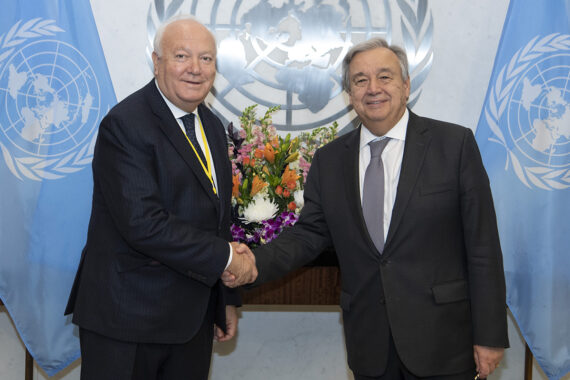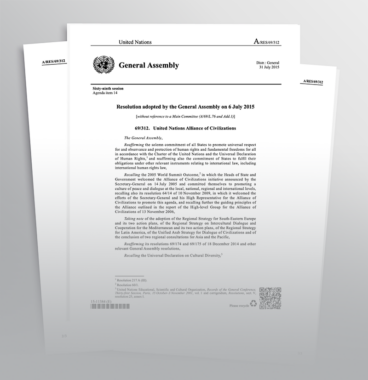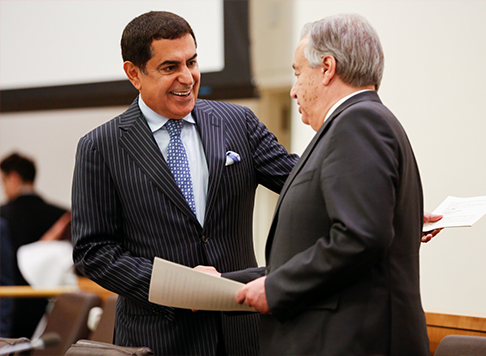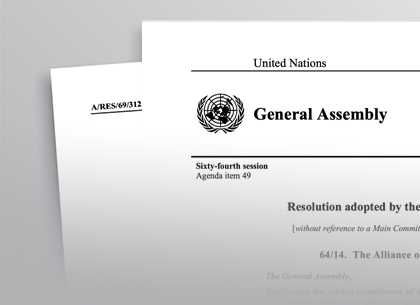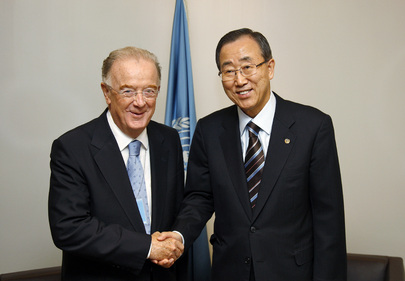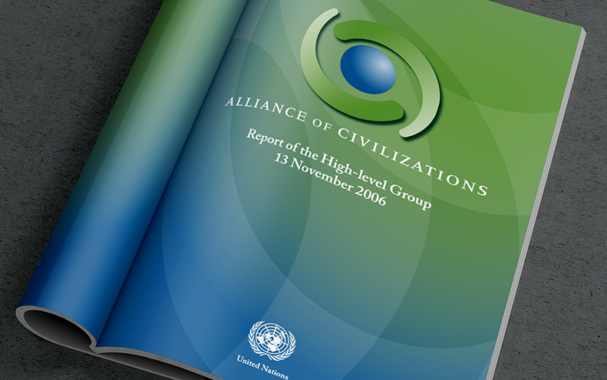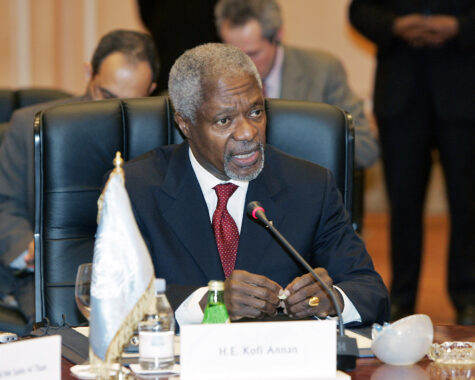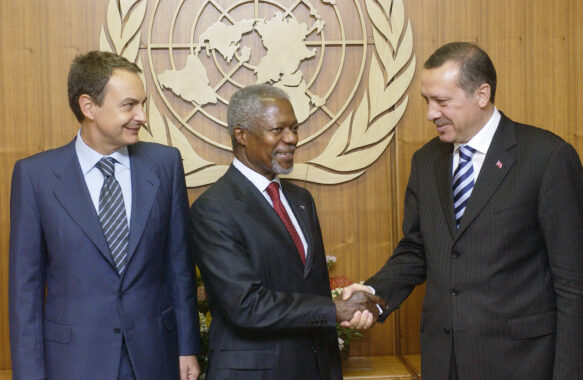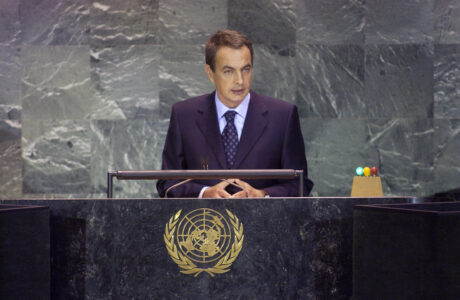New York, 14 July 2019 – On July 14th, 2005, Former United Nations Secretary-General, Mr. Kofi Annan formally announced the launch of the “Alliance of Civilizations” as his special initiative.
In his official statement, Mr. Annan said that “the initiative is intended to respond to the need for a committed effort by the international community — both at the institutional and civil society levels — to bridge divides and overcome prejudice, misconceptions, misperceptions, and polarization which potentially threaten world peace”. The initiative came at a time when the United Nations recognized an urgent need to fill a policy gap in the governance of cultural diversity, which was threatened by growing divisions between communities, the rise of violent extremism, the polarization of attitudes and world perceptions, and frequent manifestations of intolerance, xenophobia, and racism. Today, the Alliance serves as a political soft power tool for conflict prevention and conflict resolution supporting the UN Secretary-General prevention agenda.
The initiative of creating “an Alliance of Civilizations” was the brainchild of former Spanish Prime Minister Jose Luis Zapatero who proposed the initiative at the 58th session of the United Nations General Assembly in September 2004.
In his address to Member States, Mr. Zapatero said: “In my capacity as representative of a country created and enriched by diverse cultures, before this Assembly I want to propose an Alliance of Civilizations between the Western and the Arab and Muslim worlds.”
Following Mr. Zapatero’s speech, Turkish Prime Minister Mr. Recep Tayyip Erdoğan joined Mr. Zapatero as the co-sponsor of the Alliance of Civilizations.
Soon after, Mr. Kofi Annan, the UN Secretary-General formed a high-level working group of eminent personalities who were tasked with exploring the root causes for polarization in diverse societies and recommending concrete action plans to address them. The Group identified four main areas of work, namely: Youth, Educations, Media and Migration. The recommendations included in the 2006 Report of this High-Level Group became the guiding principles of the work of the Alliance of Civilizations.
The institutional status of the Alliance of Civilizations continued to evolve over the years supported by Mr, Ban Ki-moon, the former UN Secretary-General. On 10 November 2009, the United Nations General Assembly recognized the mandate of the Alliance of Civilizations by adopting resolution A/RES/64/14 “The Alliance of Civilization,” acknowledging the importance of intercultural and interreligious dialogue in promoting tolerance and expressing its continuous support for the work of the Alliance of Civilizations.
Another significant institutional development took place on 6 July 2015 when Member States demonstrated their support for the work and achievements of the Alliance of Civilizations and adopted by consensus General Assembly resolution A/RES/69/312 “United Nations Alliance of Civilizations,” hence affirming the status of the United Nations Alliance of Civilizations (UNAOC) as an entity within the United Nations system. The resolution reiterated the valuable role of UNAOC in promoting greater understanding and respect among civilizations, cultures, religions, and beliefs.
The United Nations Alliance of Civilizations (UNAOC) benefits from the political support of the UNAOC Group of Friends which currently includes 147 members of which 120 are UN Member States, 1 non-member state and 26 international organizations.
The United Nations Alliance of Civilizations (UNAOC) is led today by Mr. Miguel Angel Moratinos, former Foreign Minister of Spain who was appointed as the High-Representative for UNAOC by UN Secretary-General Antonio Guterres. He assumed his position as of January 2019. Mr. Moratinos succeeded Mr. Nassir Abdulaziz Al-Nasser, former President of the United Nations General Assembly and Mr. Jorge Sampaio, Former President of Portugal.
Today as we mark the fourteenth anniversary of its creation, we recall what Mr. Annan had affirmed time and again that “The Alliance of Civilizations was created in the belief that dialogue can triumph over discord; that diversity is a strength, not a threat; and that the peoples of the world are far more united by their shared fate than they are divided by their separate identities.”.
After all, the mantra of UNAOC is ultimately “One Humanity, Many Cultures”. It is the spirit that should be remembered and celebrated every day.

